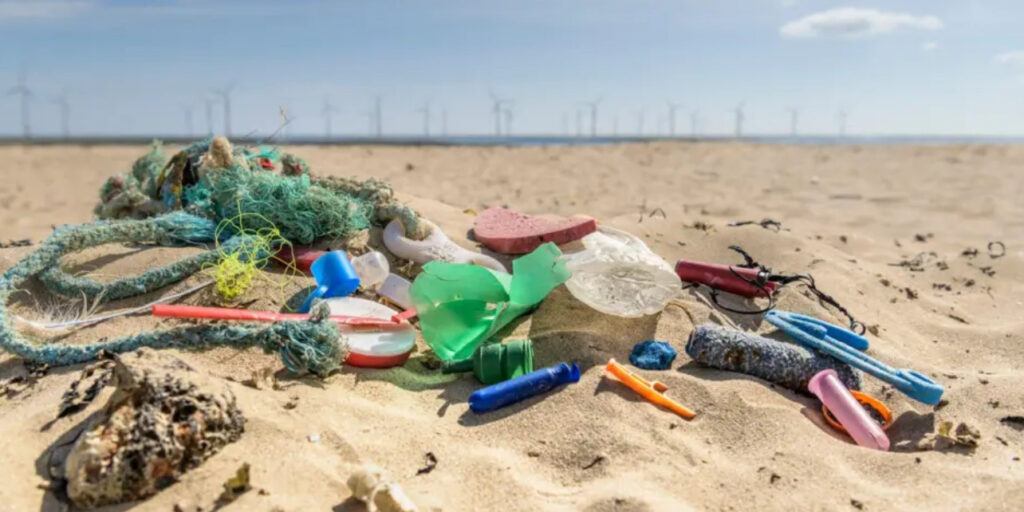Plastic waste on UK beaches has increased by nearly 10%, according to new research by the Marine Conservation Society (MCS).
The charity found that more than 15,000 volunteers collected over 750,000 pieces of litter from coastlines across the country in 2024.
MCS has been conducting annual beach cleans and surveys for over three decades, tracking pollution levels and identifying key sources of waste.
The latest data shows a 9.5% rise in plastic litter compared to 2023, reinforcing concerns that plastic pollution remains a serious threat to marine ecosystems.
The most commonly found items during clean-ups were plastic fragments, followed by single-use plastic packaging such as crisp packets, sweet wrappers and sandwich wrappers.
Bottle caps, lids, string and cord were also frequently collected.
The reasons behind the increase are not entirely clear, but the charity says plastic waste on beaches has been rising steadily since its surveys began 31 years ago.
A significant portion of the pollution comes from the public, with household waste reaching the ocean via rivers, drainage systems and coastal littering. Other sources include fishing, shipping and illegal dumping.
Lizzie Price, Beachwatch Manager at MCS, highlighted the urgent need for action, stressing that everyone has a role in protecting the marine environment. She called on the public to support stronger measures against plastic waste and reduce their own plastic consumption.
The UK government has acknowledged the problem and pledged to tackle plastic pollution. A spokesperson from the environment department stated that plastic waste has long been a blight on Britain’s waterways and wildlife, and reaffirmed the government’s commitment to cracking down on pollution.
As plastic waste continues to threaten marine life and coastal habitats, campaigners are urging businesses, policymakers and individuals to step up efforts to reduce plastic use and improve waste management.


